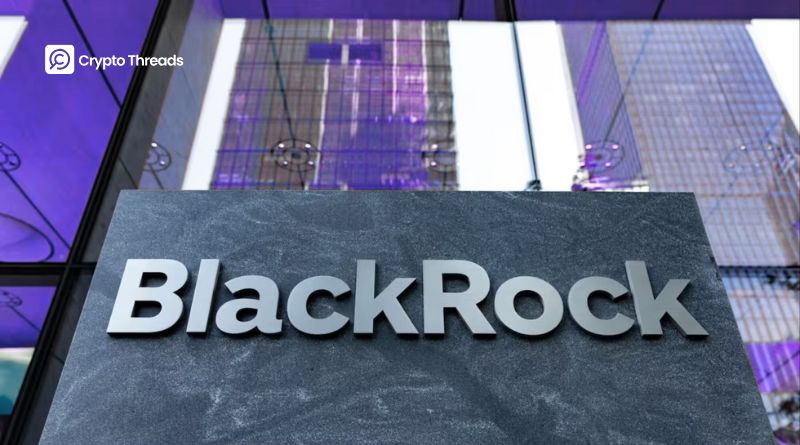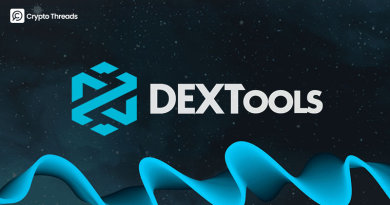BlackRock Files to Allow In-Kind Redemptions for Its Ethereum Trust, Enabling Direct ETH Buybacks

Introduction: BlackRock’s Strategic Move in the Crypto ETF Space
BlackRock, the world’s largest asset manager with over $11.5 trillion in assets under management, has filed an amended S-1 form with the U.S. Securities and Exchange Commission (SEC) on May 9, 2025, proposing the inclusion of in-kind creation and redemption for its iShares Ethereum Trust ETF (ETHA). This significant development would enable direct purchases of ETH from the market, marking a critical evolution in institutional crypto investment vehicles.
The filing, first highlighted by Bloomberg senior ETF analyst James Seyffart, includes language that would permit in-kind redemptions once approved by the SEC. This move comes approximately three months after BlackRock made a similar filing for its highly successful Bitcoin Trust ETF, signaling the asset manager’s continued commitment to expanding its cryptocurrency offerings with enhanced operational efficiencies.
What Is In-Kind Redemption and Why Does It Matter for Ethereum?
Understanding In-Kind Redemption Mechanics
In-kind redemption represents a fundamental shift in how ETF shares are processed. Currently, BlackRock’s ETHA operates on a cash-based system, where authorized participants (APs) exchange cash for ETF shares. When investors redeem shares, they receive cash, necessitating the buying or selling of ETH in the market – a process that can create tax events and increase transaction costs.
With in-kind redemption, authorized participants can directly exchange ETF shares for the underlying asset – in this case, Ethereum tokens. This bypasses the need for cash transactions and offers several key advantages for both investors and fund managers.
James Seyffart and Eric Balchunas, Bloomberg analysts tracking crypto ETFs, anticipate that the SEC will approve these in-kind processes sometime in 2025, with the final deadline for a decision being November 10, 2025.

Key Benefits of In-Kind Redemption for Ethereum ETFs
The shift to an in-kind model offers several substantial benefits that could significantly enhance the attractiveness of Ethereum ETFs:
- Enhanced Tax Efficiency: In-kind redemptions minimize taxable events by allowing the transfer of assets without triggering capital gains taxes, a critical advantage for institutional investors managing large positions.
- Lower Transaction Costs: By eliminating the need for cash conversions and market transactions, this model reduces intermediary costs and slippage.
- Improved Price Tracking: ETFs can more accurately track the actual Ethereum market price, reducing tracking errors that sometimes plague cryptocurrency investment vehicles.
- Greater Operational Flexibility: Fund managers gain additional tools to manage inflows and outflows efficiently, enhancing overall fund performance.
- Increased Market Liquidity: Direct exchange of ETF shares for ETH can improve liquidity conditions in both markets by streamlining the creation/redemption process.
According to a report from investment firm NYDIG, these improvements could lead to “tighter spreads to NAV, lower tracking error, lower create/redeem costs, and potential tax benefits” – all factors that increase institutional appeal for crypto ETF products.
BlackRock’s Ethereum ETF Performance and Holdings
BlackRock’s iShares Ethereum Trust ETF (ETHA) has shown impressive momentum since its launch in July 2024. Recent data from Sosovalue indicates that on May 9, 2025, the fund recorded $17.61 million in net inflows, distinguishing itself as the only Ethereum ETF among nine trading in the U.S. to post positive flows that day.
This strong performance follows a somewhat volatile week, with a $21.77 million outflow on May 7 and zero flow on May 8. Overall, the ETF has accumulated $15.94 million in net inflows for May 2025 thus far.
More broadly, the fund’s performance since inception has been remarkable:
- Total cumulative net inflows: $4.2 billion since July 2024
- Current total net assets: $2.93 billion as of May 9, 2025
- April 2025 performance: Closed with $108.19 million in net inflows
- Historical outflows: Only one month of net outflows (March 2025 with $200.81 million withdrawn)
In a related development highlighting BlackRock’s growing crypto commitment, the asset manager recently acquired approximately 7,976 ETH valued at around $18.9 million, bringing its total Ethereum holdings to over 1 million ETH worth approximately $2.9 billion.

Market Impact: How In-Kind Redemptions Could Affect ETH Price
Immediate Market Reaction to BlackRock’s Filing
The cryptocurrency market responded positively to BlackRock’s filing announcement. According to data from Blockchain News, Ethereum’s price surged by 8.2% within hours of the news breaking on May 12, 2025, reaching $3,150 on major exchanges like Binance and Coinbase.
Trading volume for ETH/USD and ETH/BTC pairs also spiked by 35% in the same timeframe, demonstrating heightened market activity and investor interest. This significant price action underscores the market’s optimistic view of increasing institutional involvement in Ethereum.
The equity markets showed correlated movement, with BlackRock’s stock (BLK) increasing by 2.5% to $875.30 on the NYSE, indicating investor confidence in the firm’s cryptocurrency strategy.
Analysis of Potential Long-Term Price Impact
From a broader perspective, BlackRock’s move to enable in-kind redemptions creates several potential price catalysts for Ethereum:
- Supply Reduction Effect: Direct ETH buybacks by BlackRock could effectively reduce circulating supply, creating upward price pressure if demand remains constant or increases.
- Institutional Adoption Signal: The filing represents a significant vote of confidence from the world’s largest asset manager, potentially encouraging other institutions to increase their Ethereum exposure.
- Ecosystem Effects: Enhanced ETF structures may increase overall market efficiency and liquidity, benefiting the broader Ethereum ecosystem.
On-chain data from Glassnode reveals a 12% increase in Ethereum wallet addresses holding over 1,000 ETH within 24 hours of the announcement, suggesting accumulation by large holders or “whales” in anticipation of continued price appreciation.
Additionally, related Layer-2 solutions built on Ethereum such as Arbitrum (ARB) and Optimism (OP) saw correlated gains of 5.3% and 4.8% respectively, demonstrating the ecosystem-wide impact of BlackRock’s filing.
Technical indicators also reflect strengthened market sentiment, with Ethereum breaking through its 50-day moving average of $2,950 and testing the $3,200 resistance level with an RSI of 68, indicating strong buying momentum despite approaching overbought conditions.
BlackRock’s Push for Staking Features in Its Ethereum ETF
While the in-kind redemption filing represents a significant development, BlackRock is simultaneously pursuing another enhancement for its Ethereum ETF: staking capabilities. According to internal discussions with the SEC’s Crypto Task Force, BlackRock is advocating for ETHA to include staking features that would allow the fund to generate yield from its Ethereum holdings.
Robert Mitchnick, BlackRock’s head of digital assets, has emphasized that staking is an integral part of Ethereum’s investment proposition following its transition to Proof-of-Stake consensus. He argues that excluding staking functionality from Ethereum ETFs leaves significant potential yield on the table, limiting the products’ appeal to yield-seeking investors.
While the SEC has not yet approved staking for ETFs, discussions are ongoing. According to Seyffart’s analysis from April 2025, early approval for staking could come this year, though the final decision is expected by late October, with important regulatory milestones anticipated in May and August.
If approved, staking capabilities would represent another significant advancement for mainstream crypto investment products, allowing traditional investors to participate in network validation rewards without directly managing the technical complexities of staking operations.
Broader Implications for the Crypto Market and Institutional Involvement
BlackRock’s filing represents more than just an operational enhancement to its Ethereum ETF – it signals a deeper institutional integration with cryptocurrency markets and potentially accelerates several important trends:
Growing Institutional Comfort with Direct Crypto Ownership
The push for in-kind redemptions suggests BlackRock is increasingly comfortable with directly owning and managing cryptocurrency assets rather than only offering cash-based exposure. This represents an evolution in institutional thinking about digital assets as legitimate investment vehicles.
This comfort level is further evidenced by BlackRock’s parallel Bitcoin investments. The asset manager recently increased its exposure through its iShares Bitcoin Trust (IBIT), acquiring 41,452 BTC worth approximately $3.92 billion over a two-week period. This brings IBIT’s total holdings to 614,639 BTC, valued at around $58.07 billion – a massive position that demonstrates serious long-term commitment to the asset class.
Potential Regulatory Evolution
BlackRock’s continued engagement with the SEC on both in-kind redemptions and staking functionality suggests a productive regulatory dialogue that could benefit the entire industry. With BlackRock’s considerable market influence and regulatory expertise, its active participation in shaping crypto regulations could help establish clearer frameworks that encourage broader institutional participation.
Market Structure Improvements
If approved, in-kind redemptions would bring ETH ETFs closer to traditional ETF operational models that have proven successful in equity and commodity markets. This normalization of crypto investment vehicles could help bridge the gap between traditional finance and decentralized assets, potentially expanding the investor base for Ethereum and other cryptocurrencies.
Investment Considerations and Market Outlook
For investors considering the implications of BlackRock’s filing, several key factors merit consideration:
For Retail Investors:
- Enhanced ETF Efficiency: If approved, in-kind redemptions should make ETHA more tax-efficient and potentially reduce tracking errors, benefiting all shareholders.
- Positive Price Catalysts: The combination of BlackRock’s growing ETH holdings, potential for direct ETH buybacks, and broader institutional interest could support positive price action.
- Indirect Exposure Options: For those not wanting to directly hold ETH, BlackRock’s ETF developments make institutional-grade exposure increasingly accessible through traditional brokerage accounts.
For Institutional Investors:
- Tax Optimization: The potential tax efficiencies of in-kind redemption address a major concern for large-scale cryptocurrency investment.
- Operational Streamlining: Direct asset exchanges reduce operational complexity and settlement risk compared to cash transactions.
- Portfolio Integration: As crypto ETFs adopt more traditional structures, they become easier to integrate into conventional portfolio management frameworks.
Conclusion: A Significant Step in Ethereum’s Institutional Journey
BlackRock’s filing to allow in-kind redemptions for its Ethereum Trust represents a significant milestone in the institutional adoption of cryptocurrency. If approved, this mechanism would bring Ethereum ETFs closer to traditional ETF structures, potentially increasing their appeal to a broader range of investors while supporting more efficient market operations.
For the Ethereum ecosystem, BlackRock’s continued investment and product development efforts signal growing institutional confidence in the network’s long-term value proposition. With over 1 million ETH now under BlackRock’s management and continued efforts to enhance its investment vehicles, the world’s largest asset manager is positioning itself as a major force in cryptocurrency markets.
While regulatory approval remains pending, with a final decision expected by November 10, 2025, the trajectory is clear: institutional cryptocurrency adoption continues to accelerate, with traditional finance increasingly embracing the unique characteristics of digital assets rather than trying to force them into conventional models.
This development, alongside BlackRock’s pursuit of staking capabilities and growing crypto holdings, suggests 2025 could be a pivotal year for institutional crypto adoption, with potentially significant implications for Ethereum’s market position and price performance.
FAQ: BlackRock Ethereum Trust In-Kind Redemptions
1. What exactly is “in-kind redemption” for an ETF?
In-kind redemption is a process where ETF shares can be exchanged directly for the underlying assets (in this case, Ethereum tokens) instead of cash. This mechanism allows for more tax-efficient operations and often reduces transaction costs compared to cash-based redemptions.
2. How would in-kind redemptions benefit Ethereum investors?
In-kind redemptions offer several benefits: enhanced tax efficiency by minimizing taxable events, reduced transaction costs by eliminating cash conversions, improved price tracking between the ETF and Ethereum, greater operational flexibility, and potentially increased market liquidity.
3. When will the SEC decide on BlackRock’s in-kind redemption filing?
According to Bloomberg analysts, the final deadline for the SEC’s decision is November 10, 2025, though a decision could come earlier. Previous similar filings for Bitcoin ETFs suggest the SEC is giving serious consideration to these requests.
4. How much Ethereum does BlackRock currently hold?
BlackRock recently increased its Ethereum holdings by approximately 7,976 ETH worth $18.9 million, bringing its total holdings to over 1 million ETH valued at approximately $2.9 billion.
5. What other enhancements is BlackRock seeking for its Ethereum ETF?
Besides in-kind redemptions, BlackRock is actively engaging with the SEC to include staking capabilities in its Ethereum ETF, which would allow the fund to generate yield from its ETH holdings through participation in Ethereum’s proof-of-stake consensus mechanism.
6. How has the iShares Ethereum Trust (ETHA) performed since launch?
Since its launch in July 2024, ETHA has accumulated approximately $4.2 billion in cumulative net inflows, with current total net assets of $2.93 billion. The fund has generally shown strong performance, with only one month (March 2025) experiencing net outflows.



